Estimated reading time 11 minutes, 19 seconds.
A new pilot training program with a uniquely Canadian twist is spreading its wings in Kingston, Ontario.
On April 27, Cygnet Aviation Academy was formally launched with the support of Chorus Aviation, parent company of Jazz Aviation, and Canadian training and simulation giant, CAE. But, while the celebration took place recently, Cygnet has actually been ramping up for quite some time.
According to president Lynne McMullen, the idea was originally championed by Colin Copp, president and CEO of Chorus. For years, he’d had his eye on additional collaboration opportunities with CAE, an industry leader in pilot training and flight simulation. Finally, Covid-19 downtime offered a chance to develop the framework of what would become Cygnet Aviation Academy.
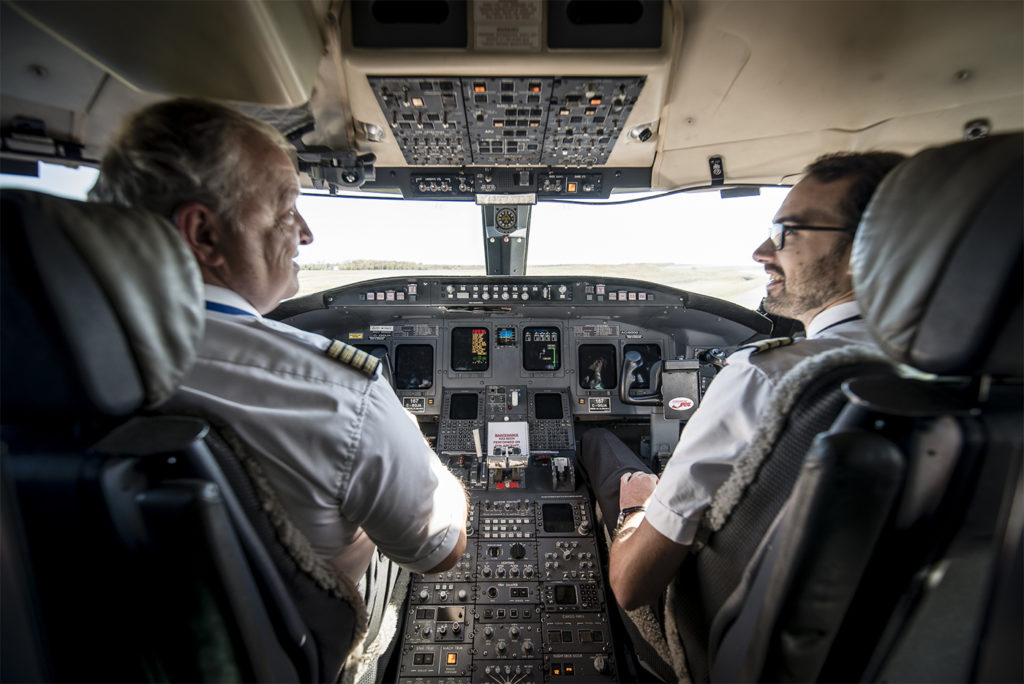
In January 2022, McMullen joined the training organization as its new president, bringing more than 25 years of flight training experience to the program. Most recently, she was director of strategic development for the Seneca College School of Aviation in Peterborough, Ontario.
Her new role takes her further east along Highway 401, where she said the City of Kingston has welcomed the pilot training program with open arms.
In early May, McMullen sat down with Skies to share the latest news from Cygnet Aviation Academy – where close industry partnerships are billed as the key to helping students successfully transition from the classroom into the right seat of a Canadian airline.
“The big differentiating piece is that students are screened by our airline partners before coming into this program,” she explained. “They are interviewed by their prospective airline and they enter the program with a conditional letter of employment – pending success, of course.”
While the school’s launch customer is Jazz Aviation, McMullen pointed out that Cygnet is independent and looking to partner with other Canadian airlines, too.
“This is not strictly a pipeline for one particular airline,” she said. “We’d be thrilled to partner with all Canadian airlines. This is one more way to help meet the unprecedented demand for commercial pilots in Canada.”
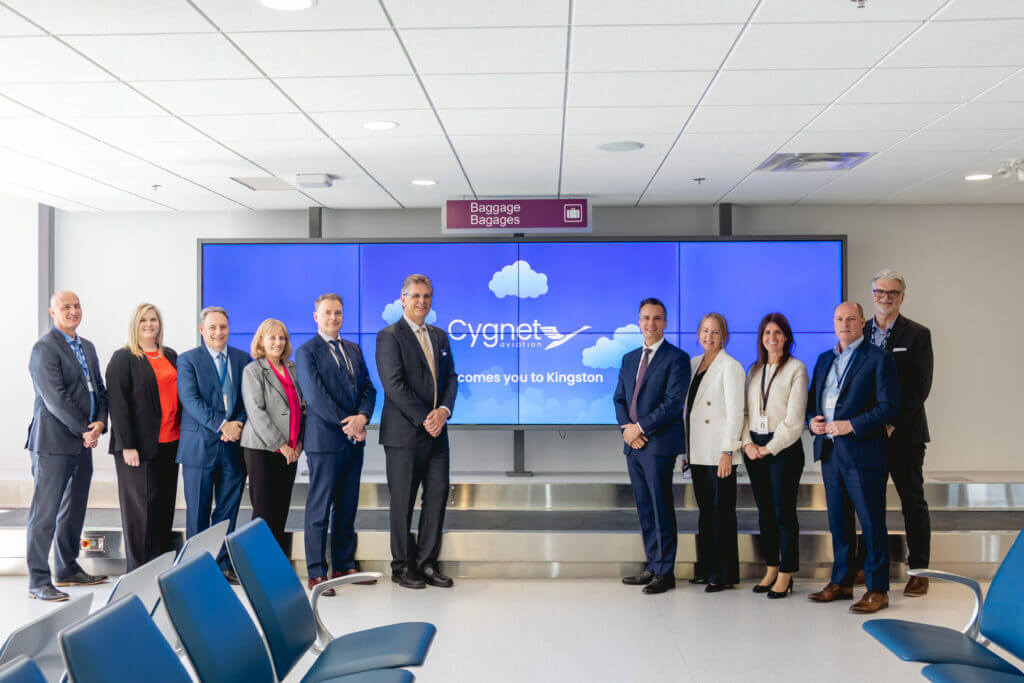
Cygnet’s portion of the program is 18 months long. In that time, students will complete an Integrated Airline Transport Pilot License (IATPL) before moving to CAE for two months, where they will complete the aircraft type rating specified by their airline sponsor. For example, those hired by Jazz will complete their CRJ-200 type rating at CAE Toronto.
The school adheres to a competency-based training model that allows students to progress quickly through easily mastered skills, while taking more training time for material that is harder to grasp. It’s a model that has been championed for years as an alternative to the traditional hours-based approach to pilot licensing.
McMullen said Cygnet students will graduate with a minimum of 205 hours of flight time, plus a “significant” amount of simulator time. When they get to CAE, they’ll be trained to their airline’s unique type rating requirements.
Currently, the school is home to 14 students.
“We are purposely starting small,” said McMullen. “As a new organization, it’s important to do things well and right. We will ramp up to 28 students per intake, with three intakes per year.”
Students will train on Canadian-made planes manufactured by Diamond Aircraft Industries in London, Ontario.
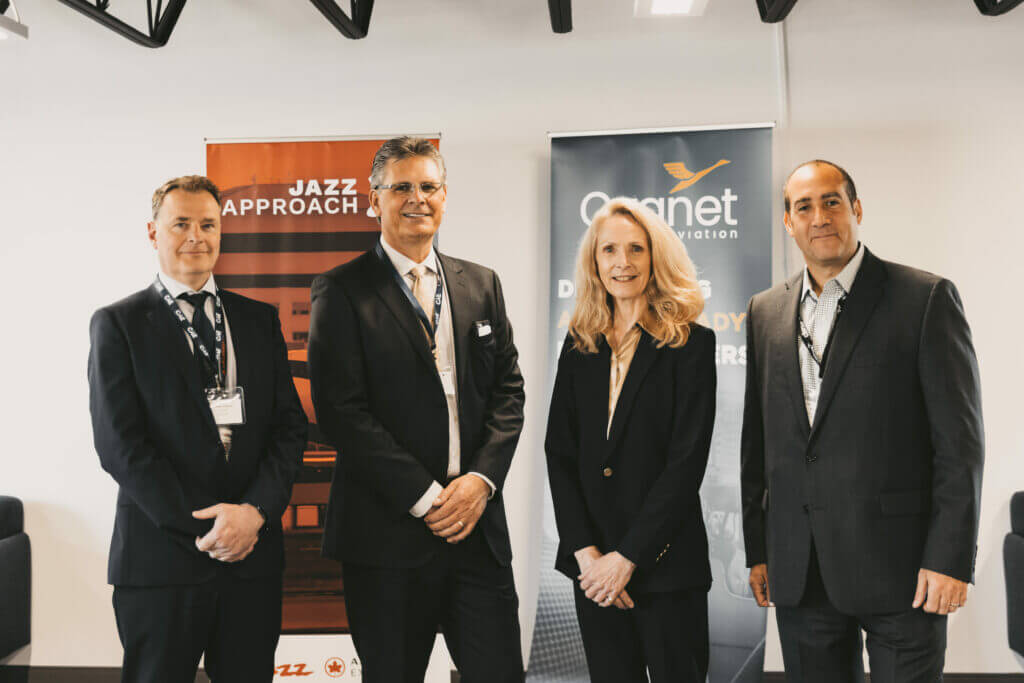
Ab initio instruction will take place in the Diamond DA20; the DA40 will be the single-engine IFR trainer; and the DA42 will be the school’s multi-engine platform. Currently, there are six aircraft in the fleet (five DA20s and one DA42) and McMullen said she expects the fleet to grow to about 12 aircraft in the next two years.
“We are working with Transport Canada to make sure we follow all of their regulations under the IATPL, but also to develop programming that will allow students to progress at their own pace,” said McMullen of the curriculum. “I am excited about incorporating a lot of simulation-based training. From my experience, I recognize that immersing students into scenarios is the best way to learn.”
Cygnet’s training fleet will also feature two French-made Alsim flight simulators. The ALX model supports up to 10 different aircraft types, from single-engine piston with analog cockpit up to medium jets. A second Alsim device, the first of its kind in Canada, will be cockpit-specific to the DA40 and DA42, said McMullen.
Cygnet currently makes its home in Hangar 4 at Kingston Airport (CYGK) and rents downtown office space for classrooms and simulators. However, the school is working with the city to build a new facility next to the Nav Canada control tower. Eventually, all operations will be consolidated there.
So, who will be training Cygnet’s students? That’s the amazing part, said McMullen.
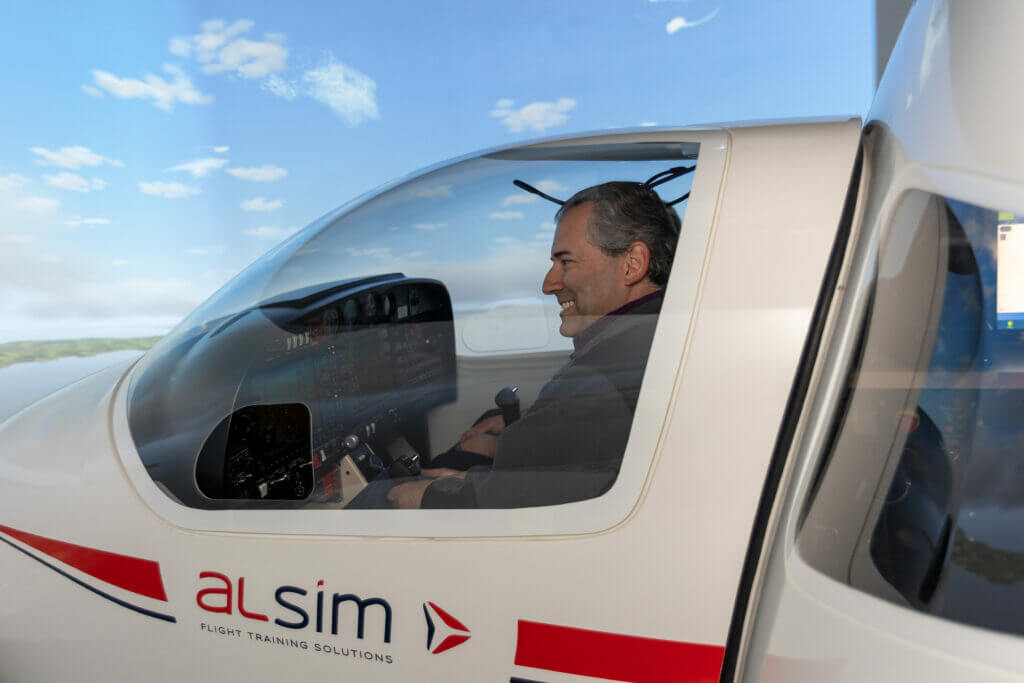
“We are developing a fabulous team of instructors. We’ve had a lot of people, including many experienced airline pilots, who have heard about what we’re doing. They are reaching out to ask if they can share their expertise and help prepare the first officers of the future. The airlines are doing competency-based training, so they are familiar with it.”
Training the first officers of the future
McMullen said input from Cygnet’s airline partners is key to the program’s success.
“We will have a lot of input from our partners as far as mentoring and helping students understand the environment they will be going to. We will also have an advisory committee made up of industry advisors to understand what it is that airlines need in the first officer of the future. Of course, once we start sending graduates, we’ll be getting their feedback on the quality of those students. The biggest thing is ongoing industry input.”
Cygnet will also work with each airline to identify their prerequisites for admission into the program. Jazz, for example, requires a post-secondary education or equivalent. Prior flight training experience is not required.
Including the IATPL from Cygnet and the type rating from CAE, the total cost of the 20-month program is $126,000. CAE has assisted with arranging student loan programs through a couple of the big banks, said McMullen. Other funding solutions are currently being developed.
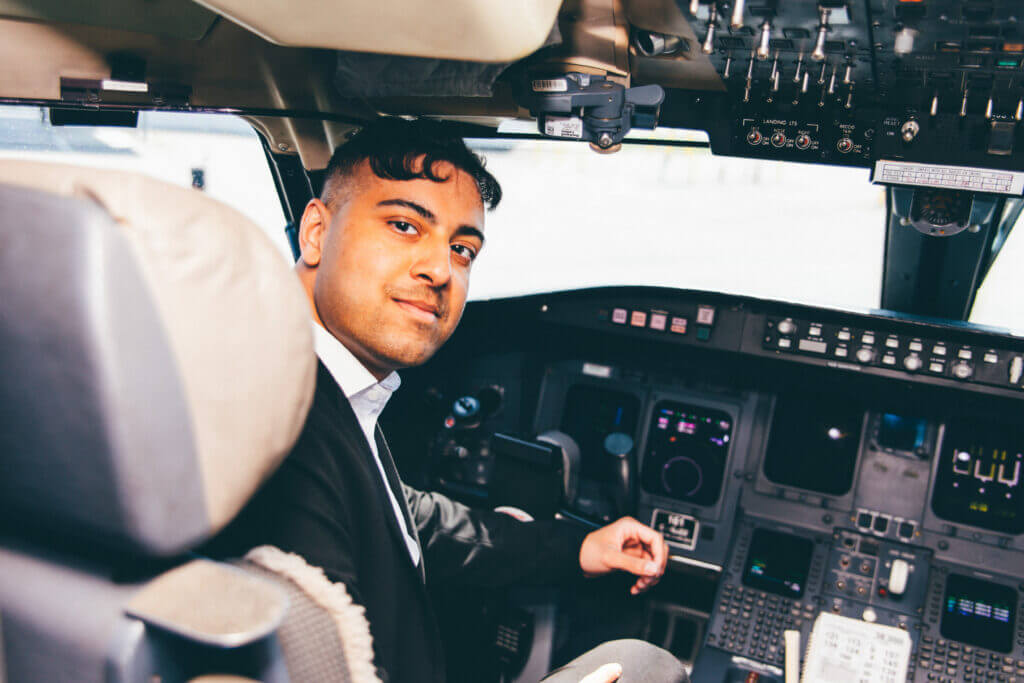
McMullen is proud to deliver what she called “a truly Canadian solution” – through collaboration with Chorus and CAE – to help meet this country’s demand for commercial pilots.
It seems additional pilot pipelines will always be welcome. According to CAE’s latest Pilot Demand Outlook, the North American civil aviation industry is expected to require 65,000 new pilots between 2020 and 2029.









$126,000 is a very expensive price tag, especially on top of the cost of a post-secondary degree. If we really need as many new pilots as they claim, why not invest in an airline-sponsored training program with tuition contracts (similar to military service). You may find that the best pilot candidate isn’t always the rich trust fund kid.
This is a step in the wrong direction. Making pilots in Canada pay for a type rating. Just another way for jazz and Canadian airlines to avoid paying what they should to attract experienced pilots.
Congratulations! I know this has been in the works for a while and I’m happy for all of you to see this taking off.